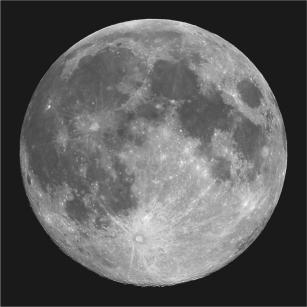Multiple Choice
Which of the following best explains why the Moon's surface has remained largely unchanged for billions of years? 
A) The rocks of the Moon's surface are stronger than those on the Earth,making them resistant to weathering and erosion.
B) The Moon does not have a hydrologic cycle,and thus erosion does not take place.
C) The absence of life on the Moon has left its surface untouched since formation.
D) Erosion on the Moon is dominated by wind,which operates at much slower speeds than water erosion.
Correct Answer:

Verified
Correct Answer:
Verified
Q1: Which of the following is a direct
Q2: How does water get from the atmosphere
Q4: Climate affects landscape development by controlling<br>A) the
Q5: Below is an oblique view showing landforms
Q6: What type of landforms might you expect
Q7: The difference in elevation in an area
Q8: Landforms built by an accumulation of sediment
Q9: What is a landform and how is
Q10: What is the ultimate control of the
Q11: If erosion is occurring in an area